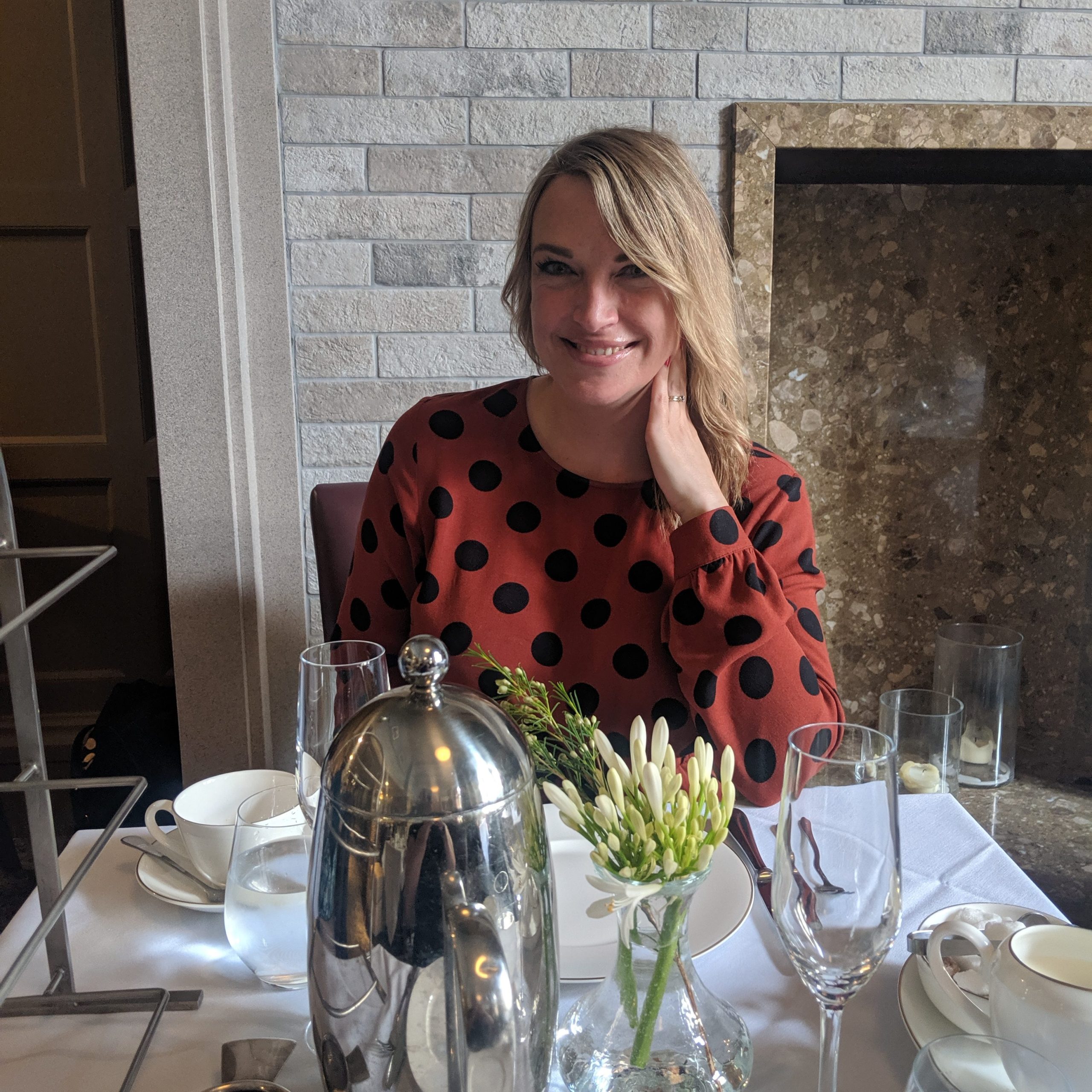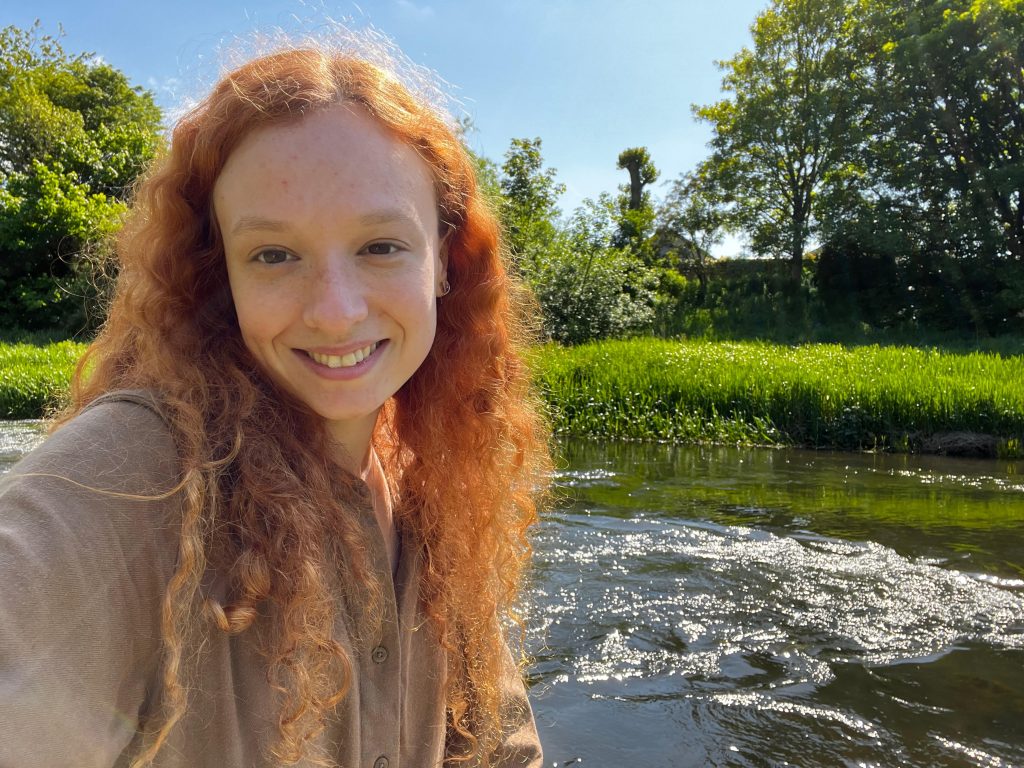*Trigger warning – eating disorders
Imagine waking up one day and being unable to swallow food. That’s what happened to me in 2017.
It followed an isolated incident where I found myself gasping for air after choking on my own saliva out of the blue one evening.
I woke up the next morning and couldn’t swallow my breakfast. Every time I put a spoonful of bran flakes in my mouth, my throat refused to cooperate which left me retching and confused.
I went to work as normal and the same thing happened again when I attempted to eat my sandwiches at lunch time. After a week of relying on protein shakes and panicking, I finally booked an appointment with my GP.
They suggested it may be due to temporary trauma caused by the initial choking incident and told me that it would be “fine to live on shakes for a few weeks until you get better”.
Four months later, there was no improvement.
I was too embarrassed to go back to my GP again and tried my best to carry on without medical support.
I unintentionally lost almost a third of my body weight and the people around me began to notice my gaunt appearance and unusual eating patterns.
I was left feeling isolated, scared and ashamed.
I desperately wanted to be able to eat solid food again as the situation took its toll on my physical and mental health, career, personal relationships and self-esteem.
After two years of appointments with ear, nose and throat specialists, a speech therapist, a psychiatrist and an emergency visit to A&E, I finally got a diagnosis of ARFID – also known as Avoidant Restrictive Food Intake Disorder.
Although it’s still a relatively new and little known eating disorder, it can have a devastating impact on those living with it.
I’m now in recovery but am far from alone in my experience.

National eating disorder charity Beat is shining a spotlight on ARFID for the first time as part of Eating Disorder Awareness Week 2024 which will take place from February 26 – March 3.
Tom Quinn, Beat’s Director of External Affairs, said: “It’s unfair that people with ARFID face so many misconceptions about their illness.
“This Eating Disorders Awareness Week, we’re shining a light on ARFID to help tackle stereotypes and support people in our community who are living with this serious condition.
“We’re calling for NHS leaders to prioritise specialist treatment to help ensure that every person with ARFID can get the support they need.”
One of the main symptoms is having issues around the texture of certain foods. This may be due to fears of choking, vomiting or other sensitivities.
Other symptoms can include things like avoiding eating in public, taking a long time to finish meals, having little interest in food, being anxious at mealtimes, chewing food very carefully and finding it difficult to recognise when hungry.
Treatment is not currently available nationwide in the UK and people with ARFID, or who suspect they may have it, often struggle to access the help they need – which is what happened in Ellen’s case.
Ellen Macpherson, 28, from Aberdeenshire was formally diagnosed with ARFID after being initially misdiagnosed with anorexia. It means that she lives on a highly restricted diet consisting of a limited number of “safe foods” due to sensory issues.
This has an extreme impact on her day-to-day life with visiting a restaurant deemed “impossible” and she couldn’t spend time with her family on Christmas Day due to the amount of food involved.
Ellen said: “I lost my job. I lost my relationship. I lost my flat. I’m now living back home with my parents.”
Even different varieties of food touching in the fridge can pose problems for Ellen and she uses a mini fridge at home to keep her own food separate.
Ellen remembers being “extremely picky and was refusing everything” as a toddler.
“The health visitor basically told my mum it was her fault because she wasn’t making food fun and I think it really upset her – she didn’t really trust them after that.”, she said.
“My eating habits made me feel excluded and lonely. I went on a school trip and just stopped eating completely.”
When Ellen attended university in 2012, things took a turn for the worse.
She said: “I got into a really bad situation where I wasn’t speaking to anyone or leaving my room apart from going to the library. I wasn’t really eating at all.”
Ellen was subsequently diagnosed with and treated for anorexia, however, as soon as her body mass index (BMI) rose high enough, she was discharged with no follow-up support.
She felt that the anorexia diagnosis “wasn’t right” given her symptoms and in 2016 she sought help again. After a year of waiting, she was told that her case was “too complicated”.
By 2021, Ellen was living in Manchester and had become very unwell. She was admitted to hospital for six months and given further support for anorexia. She was also diagnosed with autism toward the end of her stay.
Ellen faced further barriers as the ward she’d been admitted to wasn’t neurodivergent-friendly and she found it difficult to focus on improving her physical health.
“I was having issues because communication with staff was really difficult. I couldn’t understand what they were telling me and they couldn’t understand me. It led to situations where everyone was frustrated. It felt like rules were changing all the time or I’d misinterpret them and then be accused of not engaging with treatment properly.
“Even getting into the dining room, which was step one of the plan, was impossible for me because it was this big, noisy room where people were often crying hysterically. The sound of cutlery on plates made me want to cry and it all felt like a nightmare.”
Ellen spent the next two years frequently in and out of A&E in a bid to seek successful support. Though liaising with an autism charity, she was referred to a specialist consultant who recognised the symptoms and changed her anorexia diagnosis to ARFID.
Ellen has now moved back home to Scotland with her parents while attempting to seek a relevant referral.
She said: “I think when my diagnosis got changed, there was an impression that ARFID is not as serious as other eating disorders but the impact on my life has not changed. It’s still pretty devastating.”

According to Beat, ARFID accounts for around 5% of global eating disorders.
Treatment is not currently included in the Nationals Institute for Health and Care Excellence (NICE) guidelines for eating disorders and the exact number of people affected by ARFID is largely unknown due to a lack of research.
The way ARFID develops varies from person to person and is different to other restrictive eating disorders. In most cases, someone with ARFID doesn’t restrict their food intake for the specific purpose of losing weight.
There are also emerging links between ARFID and autism. One study of 536 children found that 58.3% who had an ARFID diagnosis also had autism.
ARFID support services in the UK are limited and often only available to children and young people receiving care from Children and Adolescent Mental Health Service (CAMHS), however, this is slowly changing through regional NHS pilot schemes.
Cheshire and Wirral Partnership NHS Foundation Trust provides ARFID services in Bolton, Greater Manchester.
Consultant psychiatrist Dr Jessica Morgan, who was part of implementing the pilot scheme, says that there is a “clear need for more support in the UK” and hopes to expand the current offer to more North West regions in the near future.
Dr Morgan said: “Although official statistics are still in their infancy, referrals to the pilot service have been steadily picking up momentum since we opened our doors in June 2021.
“Many of us in the field knew about ARFID and its symptoms for years – we just didn’t have a name for it. We had high-risk patients being diagnosed with typical anorexia when in hindsight, it was likely to have actually been ARFID.”
Mirroring the rise in NHS referrals, Beat has experienced a sevenfold increase in calls to their helpline from people needing support for ARFID in the last five years.
Their research also found that 8 in 10 eating disorder services in England do not provide clear guidance on their websites as to whether they provide ARFID support or not.
Nicole Kirkland is a co-founder of ARFID Awareness UK; the UK’s only registered charity dedicated to raising awareness of the eating disorder.
She is also a parent of a child with ARFID.
Nicole said: “A dietitian once said to me “all food is good food” which has been invaluable advice. It’s a mantra I’ve found myself repeating over the years to both myself and others.
“One of the toughest things about being a parent/carer of a child with ARFID, in my experience, is learning to let go of all ‘healthy eating’ expectations and attitudes I had before becoming a parent.
“Instead, I’ve learned, and am still practising, at seeing nutrition in everything – cake has eggs in it, chocolate is a source of iron and so on.”
Feature image – buffetcrush via Pixabay
If you are worried about your own or a loved one’s health, there is support available. Always call 999 if someone is in immediate danger.
Beat Eating disorders
- Website: www.beateatingdisorders.org.uk
- Phone (England): 0808 801 0677
ARFID Awareness UK
- Website: www.arfidawarenessuk.org
Samaritans
- Website: www.samaritans.org
- Phone: 116 123




